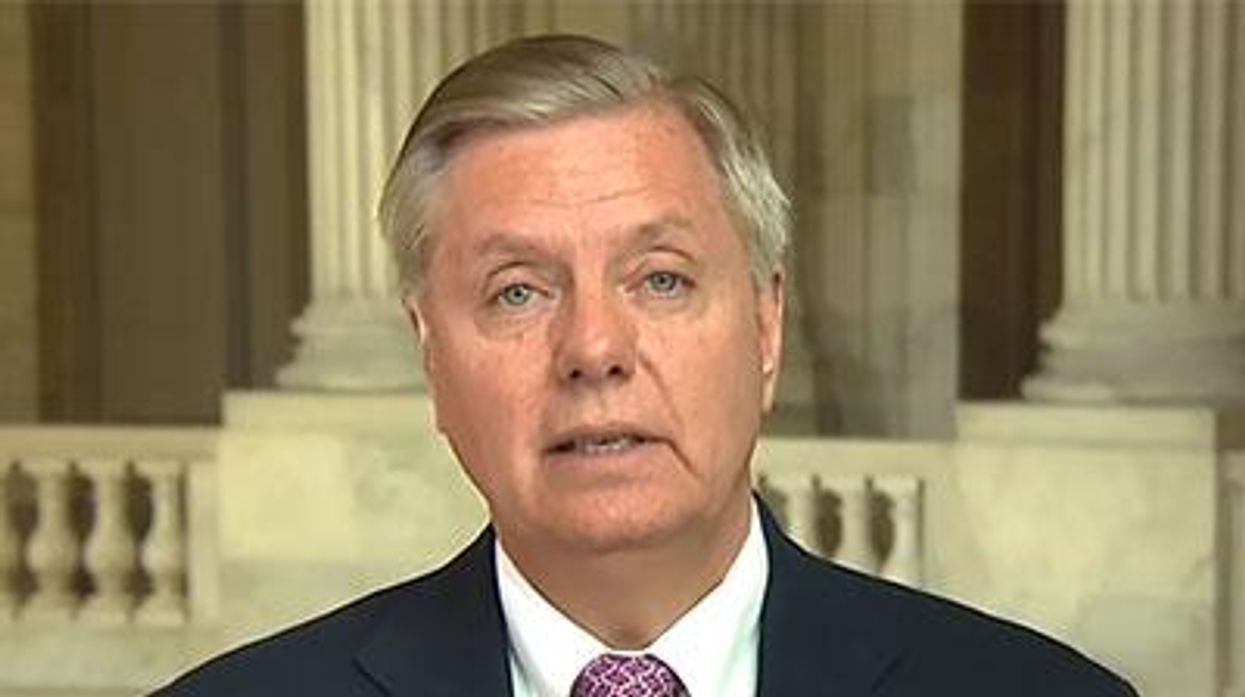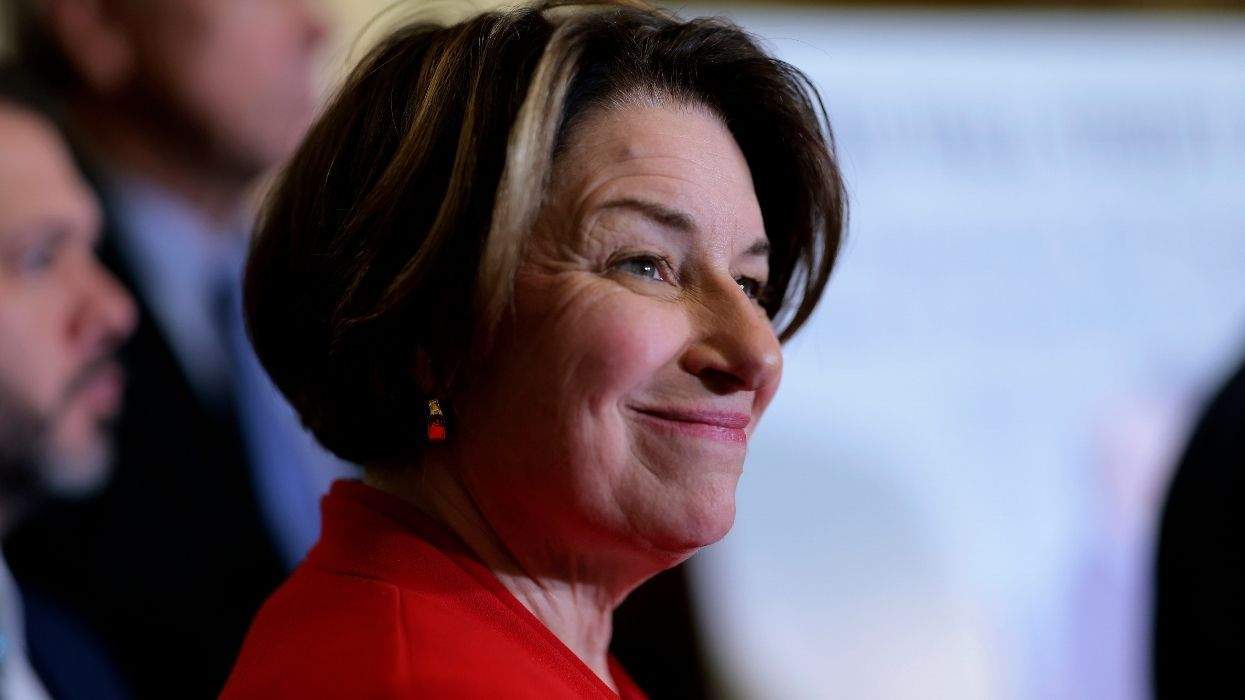Republican U.S. Sen. Lindsey Graham of South Carolina distinguished himself earlier this month by being the first of his party's declared candidates for president to formally welcome newly out transgender woman Caitlyn Jenner to the GOP.
That prompted an interesting discussion Tuesday with Fusion's Jorge Ramos, who asked Graham if his welcoming stance would extend to Jenner hypothetically joining the military, which currently bars people who are known to be transgender from serving.
"You've said that Caitlyn Jenner would be welcome in your party," prompted Ramos. "But would she be welcome in your Army? In other words, do you believe that transgender troops should be able to serve openly in the U.S. military?"
"As far as I know," Graham speculated, "I don't think there's any bar against transgender service."
The senator (incorrectly) stated that "anyone can serve in the military who's qualified," and pointed to the 2011 repeal of "don't ask, don't tell," which allowed gay, lesbian, and bisexual Americans to serve openly.
But the repeal of DADT had no impact on the long-standing military medical regulation (Department of Defense Instruction 6061.03) that continues to declare transgender identity, or any gender-affirming clinical or surgical treatment, evidence of a "psychosexual condition" for which a service member may be discharged.
Ramos explained that to the 59-year-old Republican from South Carolina, pointing to a 2014 study from the Williams Institute at the University of California, Los Angeles, School of Law that estimated there are more than 15,000 transgender people currently serving in the U.S. Armed Forces.
"I would ask my commanders why do you think this policy needs to remain in place," Graham said, nodding his head inquisitively. "But my preference would be to allow everybody to serve."
"With no discrimination whatsoever?" Ramos clarified.
"Well, discrimination that makes sense," Graham qualified. "I mean, you've got to be physically fit, you've got to be mentally qualified to serve, the criteria are going to be based on your performance, it wouldn't be based on these kind of factors."
"But I'd like to hear from the military, quite frankly, Jorge," Graham concluded. "I don't know, I don't know the answer to that, and I don't want to give you an answer off the top of my head, I'd like to hear their version of why we do what we do."
In fact, several branches have spoken up about the trans military ban, which has not been revised since it was introduced in the 1970s. As advocates increasingly point to a growing body of evidence that there is "no medically compelling reason" to bar transgender people from military service, the Pentagon has consistently stated that there is no review of the ban on trans service currently under way. Nevertheless, Secretary of Defense Ashton Carter said in February that he was "open-minded" about revising the policy, stressing that he believes everyone who is willing and able to serve in the military should be able to do so.
Just this month, the U.S. Air Force announced that transgender identity -- or a diagnosis of gender dysphoria -- alone will no longer require a service member to be discharged, if there are no disciplinary issues or other areas of concern.
The Air Force also followed the lead of the U.S. Army by elevating the level of the commander who ultimately decides whether a trans service member should be kicked out. The U.S. Navy is reportedly considering a similar move, which advocates have welcomed as a step toward open service for the estimated 15,500 transgender Americans currently serving in the U.S. military.
Graham's latest comments are somewhat similar to those made yesterday by one of his rivals for the Republican presidential nomination, former Florida Gov. Jeb Bush, who said he has "no knowledge of the specifics of" the current regulation surrounding transgender military service. However, Bush did express an openness to letting trans Americans serve, telling BuzzFeed News that he was "sure there's a role for everybody to play in the armed forces." He went on to qualify that allow transgender Americans to serve in the military would "depend on ... the specific role, whether it's appropriate or not."
Watch Graham discuss open trans service with Ramos below.
















